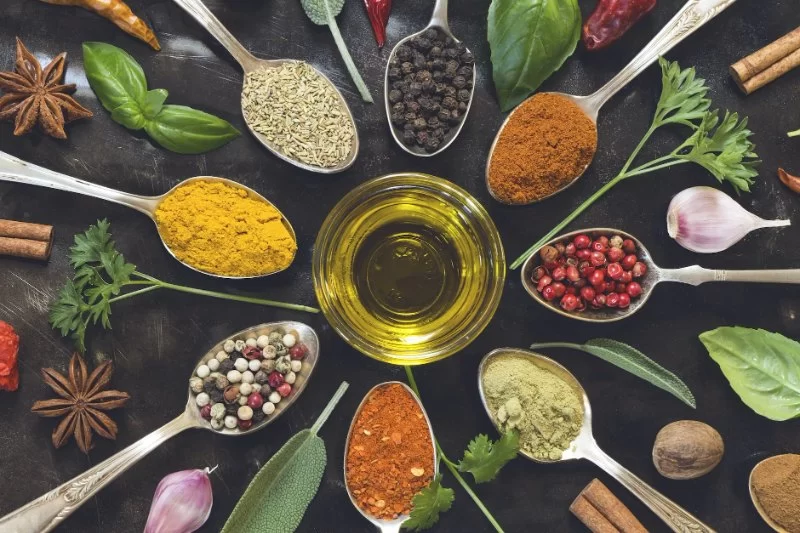- 1 - The Role of Spices and Herbs in Daily Cooking
- 2 - How Antioxidants in Spices and Herbs Improve Health
- 3 - Popular Spices and Herbs Known for Antioxidants
- 4 - Culinary Stories and Real-Life Uses
- 5 - Expert Advice on Incorporating Spices and Herbs
1 - The Role of Spices and Herbs in Daily Cooking
Spices and herbs have always played a central role in human cuisine, not just for taste but for wellness. From the peppercorns of India to Mediterranean basil, every culture embraces unique flavors. Beyond taste, many spices and herbs are packed with natural compounds that promote health. In fact, using fresh or dried herbs in your daily meals can be one of the simplest ways to make food healthier without complicated diets.
2 - How Antioxidants in Spices and Herbs Improve Health
Antioxidants are compounds that help fight free radicals, unstable molecules that can damage cells and accelerate aging. Many spices and herbs are loaded with these compounds, making them natural defenders of your health. For example, rosemary contains carnosic acid, while turmeric’s curcumin has been studied extensively for its anti-inflammatory and antioxidant properties. Regular use of these seasonings can help reduce oxidative stress, lower risk factors for chronic disease, and support long-term vitality.
3 - Popular Spices and Herbs Known for Antioxidants
Several everyday spices and herbs are particularly rich in antioxidants:
Turmeric: Famous for its bright yellow color and curcumin content, it is widely used in both cooking and natural medicine.
Cinnamon: Not only does it add warmth to dishes, but it also has high polyphenol content that supports blood sugar control.
Oregano and Thyme: These Mediterranean favorites are surprisingly potent sources of antioxidants that rival some fruits and vegetables.
Ginger: Known for aiding digestion, it also contains compounds like gingerol that reduce inflammation.
These choices are not exotic luxuries—they’re easily accessible and can fit into your everyday meals. At HeartCare Hub, you can find recommendations on quality spices and herbs that maximize flavor and health benefits.
4 - Culinary Stories and Real-Life Uses
Across the world, spices and herbs are tied to stories of health and longevity. In Japan, communities with high life expectancy frequently use green tea and ginger in their diets. In the Mediterranean, oregano and basil feature prominently in dishes that form part of the famous Mediterranean diet, known for supporting heart health. Even in modern kitchens, home cooks often discover how a pinch of turmeric in soup or a dash of cinnamon in oatmeal not only transforms taste but also contributes to daily wellness.
5 - Expert Advice on Incorporating Spices and Herbs
Nutrition experts suggest small, consistent changes. Instead of relying on salt for flavor, use a blend of rosemary, thyme, and garlic. For morning routines, adding cinnamon to coffee or smoothies is a subtle way to benefit from antioxidants. When cooking vegetables, a sprinkle of turmeric or oregano can elevate both taste and nutrition. These simple habits can be transformative when practiced regularly. For trusted options, HeartCare Hub highlights curated spice and herb selections tailored to health-conscious cooking.
Spices and herbs for flavor and antioxidants are more than just culinary tools—they’re natural wellness allies. By making them a staple in your cooking, you not only enrich your meals but also invest in long-term health.





















